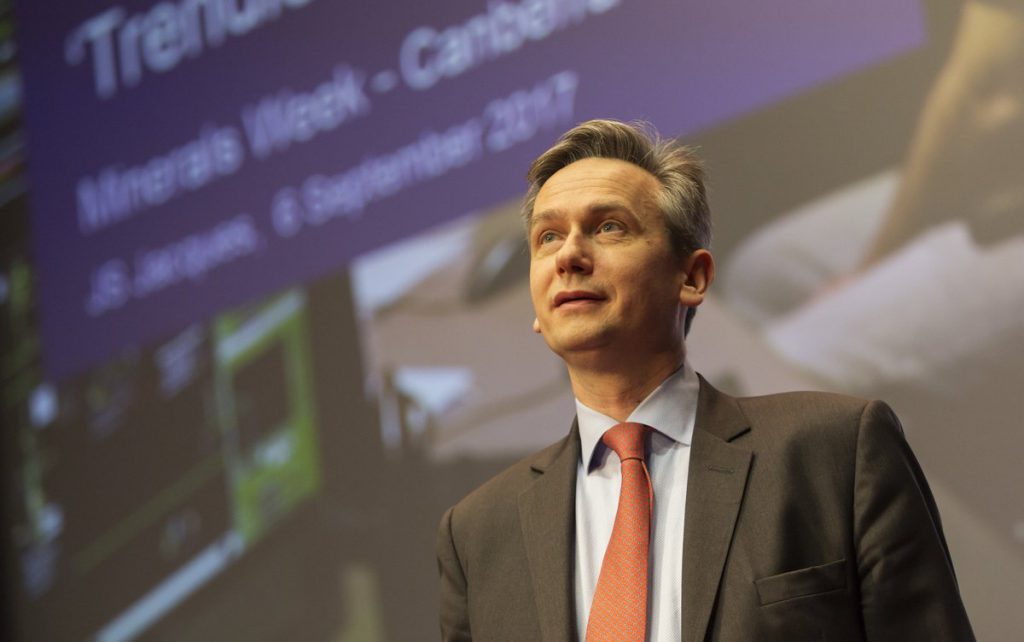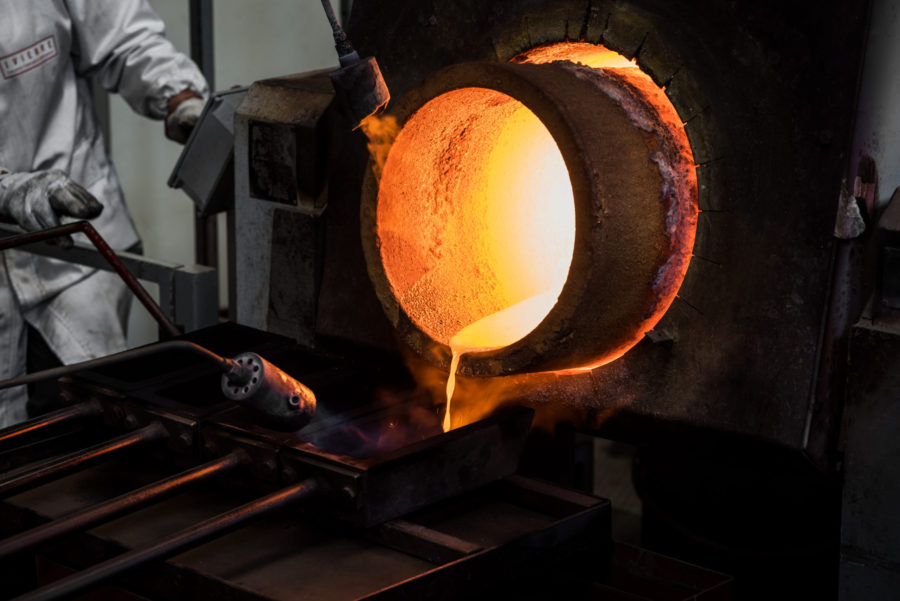Rio needs more than a safe pair of hands

Rio Tinto Group may choose to play it safe in its next choice of chief executive officer. With Jean-Sebastien Jacques heading for the exit after the destruction of a sacred Aboriginal site, Australian politicians are also piling on pressure for a local to be given the role. The mining giant should resist the temptation of an old-school solution.
Jacques’s successor will certainly have to rebuild Rio’s credibility after the spectacular failure at Juukan Gorge. Repairing frayed community and government relations will be among the first tasks. It won’t be enough to pick a veteran technocrat for CEO, though, as miners did after the mistakes of the last boom. He or she won’t be able to repeat the trick that saw French-born J-S, as he is widely known, hand back billions to shareholders.
The new boss will have to show Rio understands the iron ore business, which accounts for more than 90% of earnings and where prices are softening. Longer-term reconstruction will also involve resolving large, troublesome projects in Guinea and Mongolia, and positioning the company for greener growth. A steady hand on the tiller, while necessary, won’t be sufficient.
The new boss will have to show Rio understands the iron ore business, which accounts for more than 90% of earnings and where prices are softening
Jacques, who took the top job in 2016 at 44, did plenty of things right. Rio has distributed $38 billion in cash returns since that year, including 2020’s interim dividend, and the shares have doubled. He extricated Rio from the Freeport-McMoRan Inc.-operated Grasberg mine in Indonesia. And he sold out of coal at a laudable price, well before peers began to rush for the door — even if the environmental, social and governance halo that came with both of those departures didn’t last.
The outgoing CEO has also left plenty of problems for his replacement, well beyond the public relations disaster in Western Australia. A unit he set up to invest in green-economy materials has yet to make its mark. Mongolia, where Jacques’s role in settling a previous dispute was key to his elevation, remains a technical, financial and political headache. The future of the giant Simandou iron ore mine in Guinea is also unclear. Least defensible of all, he stopped short of putting the miner on a decisively carbon-light track, failing to set targets for lower emissions beyond the company’s own operations.
To make matters worse, his premature departure could hardly have been messier. As a result, a tainted CEO remains in place temporarily, while the chairman and board who will pick his replacement are badly sullied, too. They underestimated the problem and initially backed the forceful Jacques. They also failed to adequately prepare for his succession.
Yet while the Anglo-Australian miner has suffered a reputational hit, its core operation is still producing impressive margins. It’s an enviable position that gives the company room to do more than bask in the iron ore price, even if investors are wary of radical moves — its shares rose after Jacques’s departure, on relief that big investments are off the table for now.
One option to signal willingness to change is to pick an outsider, preferably one with operational expertise to appease investors, but also enough familiarity with Rio to grapple with the culture and its problems. That could be rail freight operator Aurizon Holdings Ltd.’s Andrew Harding, a former Rio iron ore boss passed over for the top job in 2016, if his Pilbara record holds up after Juukan Gorge.
Otherwise, gold miner Newmont Corp.’s Tom Palmer, who previously worked in iron ore, or Newcrest Mining Ltd.’s Sandeep Biswas. Better yet, Rio could pick a female leader. Worthy candidates include Zoe Yujnovich, a one-time boss of Rio’s Canadian iron ore venture, before she left for Royal Dutch Shell Plc in 2014.
Outsiders can be slow to bring on board, though, and Rio cannot afford to wait six or 12 months. Insiders, then, come into view.
The new chief will have to rebuild bridges. Besides Western Australia, this matters in Mongolia, where Rio is in arbitration over tax payments. In Guinea, there is an election on the horizon. That may point to Mongolian-born Bold Baatar, who has been involved with the Oyu Tolgoi operation and is now in charge of Simandou, as part of energy and minerals.
Former bankers make deal-wary shareholders uneasy, though. That suggests instead aluminum boss Alf Barrios, who has led a turnaround and proved he can tune in to clients’ green demands. China, a key consumer of Rio’s iron ore and other metals, has just promised to be carbon neutral by 2060, a warning worth heeding. Change isn’t easy, as BP Plc has shown. Adapting to the zero-emissions reality will be less dramatic for Rio, but no less necessary.
One person can’t fix all these things, of course. A final step will be to refresh Rio’s underwhelming board, particularly with ESG and community relations experience, given mining in the Pilbara won’t be the same in the next decade and beyond. There’s room here for that extra Australian voice that Canberra is demanding, perhaps in the chairman’s spot.
Jacques’s abrupt departure has offered the world’s second-largest miner a chance to course-correct. Rio would be foolish not to take it.
(By Clara Ferreira Marques)
More News
Gold price drops 3% on US jobs data beat
Spot prices fell as much as 4% to $4,880 per ounce, before parsing some losses.
February 12, 2026 | 10:09 am
{{ commodity.name }}
{{ post.title }}
{{ post.date }}




Comments